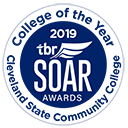Reporters and Correspondents
Reporters and Correspondents
27-3022.00
Median wages
$30,850
Collect and analyze facts about newsworthy events by interview, investigation, or observation. Report and write stories for newspaper, news magazine, radio, or television.
- Receive assignments or evaluate leads or tips to develop story ideas.
- Research a story's background information to provide complete and accurate information.
- Arrange interviews with people who can provide information about a story.
- Establish and maintain relationships with individuals who are credible sources of information.
- Report news stories for publication or broadcast, describing the background and details of events.
- Gather information about events through research, interviews, experience, or attendance at political, news, sports, artistic, social, or other functions.
- Revise work to meet editorial approval or to fit time or space requirements.
- Review and evaluate notes taken about news events to isolate pertinent facts and details.
- Investigate breaking news developments, such as disasters, crimes, or human-interest stories.
- Review written, audio, or video copy and correct errors in content, grammar, or punctuation, following prescribed editorial style and formatting guidelines.
- Report on specialized fields such as medicine, green technology, environmental issues, science, politics, sports, arts, consumer affairs, business, religion, crime, or education.
- Determine a published or broadcasted story's emphasis, length, and format and organize material accordingly.
- Transmit news stories or reporting information from remote locations, using equipment such as satellite phones, telephones, fax machines, or modems.
- Check reference materials, such as books, news files, or public records, to obtain relevant facts.
- Discuss issues with editors to establish priorities or positions.
- Photograph or videotape news events.
- Take pictures or video and process them for inclusion in a story.
- Present live or recorded commentary via broadcast media.
- Conduct taped or filmed interviews or narratives.
- Develop ideas or material for columns or commentaries by analyzing and interpreting news, current issues, or personal experiences.
- Communicate with readers, viewers, advertisers, or the general public via mail, email, or telephone.
- Write online blog entries that address news developments or offer additional information, opinions, or commentary on news events.
- Assign stories to other reporters or duties to production staff.
- Write columns, editorials, commentaries, or reviews that interpret events or offer opinions.
- Edit or assist in editing videos for broadcast.
- Analytical or scientific software — SPSS ; Statistical analysis software
- Data base user interface and query software — FileMaker Pro ; Microsoft Access ; Microsoft SQL Server ; Online databases
- Desktop publishing software — Adobe Systems Adobe InDesign; Microsoft Publisher; Quark Xpress
- Instant messaging software — Twitter
- Internet browser software — Web browser software
- Map creation software — ESRI ArcView; Mapping software
- Object oriented data base management software — Microsoft Visual FoxPro
- Office suite software — Microsoft Office
- Presentation software — Microsoft PowerPoint
- Spreadsheet software — Microsoft Excel
- Video creation and editing software — Apple Final Cut Pro; Video editing software; YouTube
- Web page creation and editing software — Facebook; Social media software
- Web platform development software — Hypertext markup language HTML
- Word processing software — Microsoft Word
Hot Technology — a technology requirement frequently included in employer job postings.
- Active Listening — Giving full attention to what other people are saying, taking time to understand the points being made, asking questions as appropriate, and not interrupting at inappropriate times.
- Reading Comprehension — Understanding written sentences and paragraphs in work related documents.
- Writing — Communicating effectively in writing as appropriate for the needs of the audience.
- Speaking — Talking to others to convey information effectively.
- Critical Thinking — Using logic and reasoning to identify the strengths and weaknesses of alternative solutions, conclusions or approaches to problems.
- Social Perceptiveness — Being aware of others' reactions and understanding why they react as they do.
- Active Learning — Understanding the implications of new information for both current and future problem-solving and decision-making.
- Time Management — Managing one's own time and the time of others.
- Complex Problem Solving — Identifying complex problems and reviewing related information to develop and evaluate options and implement solutions.
- Monitoring — Monitoring/Assessing performance of yourself, other individuals, or organizations to make improvements or take corrective action.
- Judgment and Decision Making — Considering the relative costs and benefits of potential actions to choose the most appropriate one.
- Persuasion — Persuading others to change their minds or behavior.
- Coordination — Adjusting actions in relation to others' actions.
- Negotiation — Bringing others together and trying to reconcile differences.










